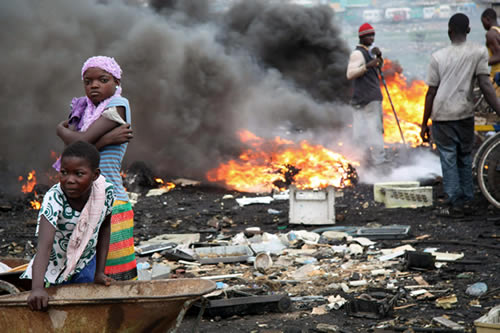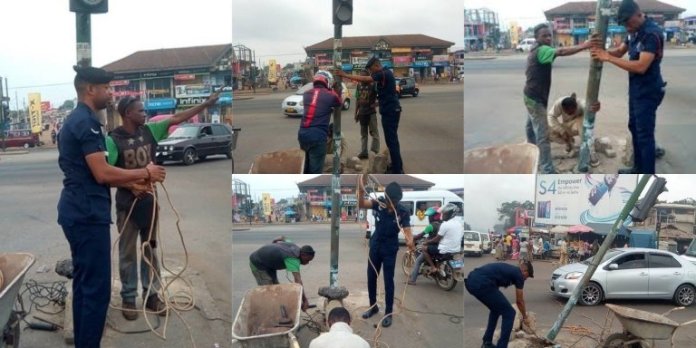KNUST researchers working to develop air quality index for Ghana soon
- Home
- KNUST researchers working to develop air quality index for Ghana soon

KNUST researchers working to develop air quality index for Ghana soon
Research scientists at the Department of Meteorology and Climate Science at the Kwame Nkrumah University of Science and Technology (KNUST) are working tirelessly to develop an air quality index for Ghana.
Professor Leonard Amekudzi, Provost of the College of Science at KNUST, who announced this, said until the country had inventory and measurements to get data on air quality and made the people aware, “we cannot claim pollution prevention as a right in our environment.
“We are therefore, looking forward to forecast air quality for the country and have therefore brought the Ghana Meteorological Agency on board who are providing weather information.
“What the Agency will do is that they will have air quality as one of their forecasts to broadcast to the public periodically,” Prof. Amekudzi explained, at the opening of a 10-day West African School on Air Quality and Pollution Prevention in Kumasi.
The West African School on Air Quality and Pollution Prevention, is being organized with support from Clean Air Fund.
It brought together researchers, industries, academia, and communities selected from across West Africa, to discuss, support, learn and experiment ways that will support policy interventions and advocacies in contributing to enhancing and enforcing stricter regulations, investing in clean energy infrastructure, and supporting research and development in air quality.
Prof. Amekudzi cited that, for instance if one lived in Kumasi, one of the densely populated places in Ghana, and wanted to go to the Central Business District such as Adum, the person should be able to know the air quality within that time.
He added that air quality varied diurnally (increases because of solar radiation), which meant there were times that it was going to be high.
Again, high human activities, and vehicular traffic also increased air pollution.
“If there is an index, one will know when to go to a densely populated area to run businesses, is it best I go in the morning or later in the day,” he quizzed.
He said air pollution had been described by researchers as a serious and critical phenomenon, which needed attention to curtail its consequences.
Prof. Amekudzi, therefore stressed the need for researchers, especially those in the West African sub-region, to come together and develop an air quality index for countries in the sub-region.
Memorizing the dire effects of air pollution, the Provost indicated that after the impacts of COVID-19 pandemic, it was believed that the next pandemic would be caused by air pollution, a silent killer, which caused shutdowns in systems and responsible for millions of premature deaths worldwide each year.
The World Health Organization estimates that 90 percent of West Africans breathe polluted air.
Prof. Amekudzi indicated that surroundings were polluted by “our own activities” including burning of refuse, use of non-clean sources of energy for cooking, industrial pollution, rapid urban growth, and illegal mining activities continued to affect the quality of air.
Prof. David Asamoah, Pro Vice-Chancellor of the KNUST, said the university as a pacesetter in technology and science, would continue to impart knowledge and advance good public health and environmental sustainability, to help improve the well-being of communities.
He pointed out that “what we breathe is essential to human survival, yet it remained a neglected aspect of our environment.”
Prof. Asamoah suggested that human capacities were needed in tackling air pollution and ensure a high standard of air quality to provide an air quality index as a forecast product in the continent’s meteorological agencies.
Source: GNA
- Share
Classic Ghana
Classic Ghana is a vibrant news portal dedicated to bringing you the latest in arts, entertainment, fashion, beauty, photography, culture, and everything in between. Our mission is to publish high-quality articles and features that inform, inspire, and engage the general public. We also believe in the power of community and creativity. That’s why we welcome contributions from our readers! If you have a story, article, or idea you'd like to share, we invite you to submit it for publication. Send your stories to: info@classicghana.com







